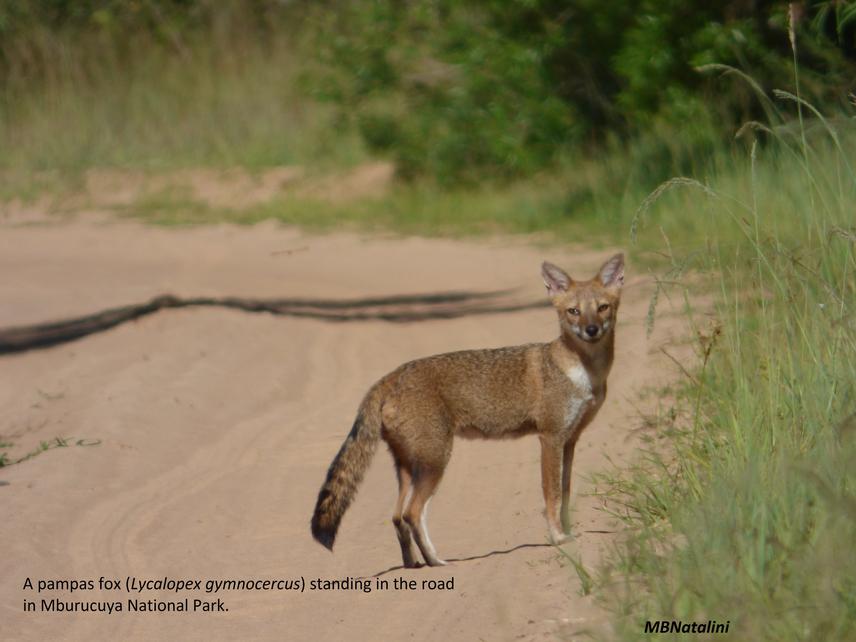Maria Belen Natalini
Ranked among the top threats to conservation worldwide, infectious diseases are of particular concern to wild canids because domestic dogs (Canis lupus familiaris) may serve as sources and reservoirs of infections which cause epidemic outbreaks in the wild. The aim of this project is to evaluate the infectious diseases dynamics of wild and domestic canids present in protected areas and buffer zones Northern Argentina, to establish baseline health information, and to analyze how parasite prevalence vary according to environmental and social factors. Since the Maned Wolf is categorized as Endangered on the Red List of Argentinean Mammals it is essential to provide these information, to avoid reductions or disappearance of their local populations. We used dogs and maned wolves sympatric foxes as sentinels of pathogens to which endangered species and people may be exposed.

Wild canids are good indicators of infectious diseases circulating within an ecosystem such as rabies, leptospirosis, parvovirus infection, canine distemper and mange among others. Their ecology and social behavior, their communication by smell and the genetic proximity to domestic dogs, make them particularly vulnerable to infectious agents. Domestic animals are reservoirs of zoonotic infectious agents that have caused epidemics in wild canids from around the world. Dogs, for example, can be the source of at least 60 species of parasites infecting humans. There are three species of sympatric canids in Corrientes province, in Northern Argentina, the crab eating fox, Cerdocyon thous, the gray fox, Lycalopex gymnocercus and the maned wolf, Chrysocyon brachyurus. These species are susceptible to many pathogens of domestic dogs. In addition to causing morbidity and mortality among these wild canids, these zoonotic pathogens can cause adverse effects on remnant populations, populations genetically compromised, or fragmented populations of threatened or endangered species, like the maned wolf.
This project will take place at two protected sites in Corrientes province Mburucuyá National Park and San Nicolas (Ibera Nature Reserve) and their surroundings where the contact between wildlife and livestock/humans and associated domestic animals increases. Fresh feces samples of wild and domestic canids from the selected sites will be collected opportunistically. After finishing the field work phase of this project, the presence of parasitic forms will be assessed through classic parasitology and molecular techniques will be used to confirm microscopic identifications of parasite strains and also to determine sources of infection and the risk factors associated with their transmission.
This study will contribute to the knowledge of the parasites of sympatric wild canids and domestic dogs, and the determination of the risk of transmission between these species and the ecosystem in relation to species overlap and habitat disturbance. This proposal includes an educational program within the park and surrounding and also a sanitary plan for domestic dogs living close to our proposed study sites and an education program for their owners.